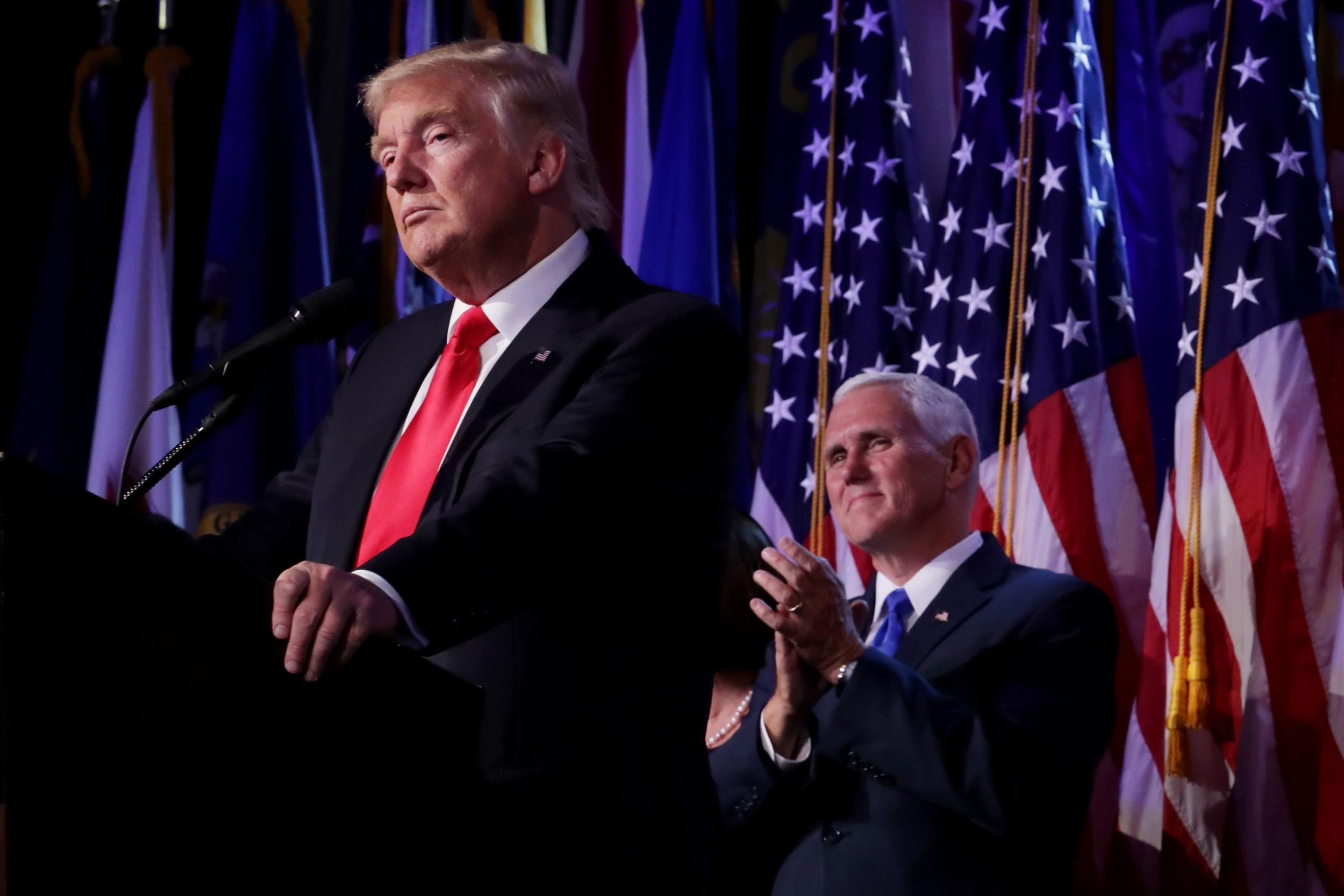Donald Trump and Brexit have proven the centre ground is dead – and the 2008 recession killed it
In both the momentous presidential and Brexit votes, the white working class played a significant role in what in the US has been called a 'whitelash' – although Trump did better than expected amongst women and Hispanics


Insisting that he could defy the odds and win, Donald Trump promised his supporters “Brexit plus, plus, plus”. Surely, many of us thought, such a seismic shock could not happen twice in five months?
Now it has, and we should have seen it coming.
There are many parallels. On both sides of the Atlantic, we are witnessing a delayed reaction to the 2008 financial crisis. Working class people are angry. Their wages have stagnated and they have seen millions of industrial jobs disappear under globalisation. They fear their children and grandchildren will be worse off than them. Migrants became a useful scapegoat for right-wing populists, who made curbing immigration part of their economic nationalism.
So the “left behind” are in revolt, and have taken their revenge on a political establishment committed to neoliberalism, who allowed the rich to get richer and inequality to grow.
Like Trump’s remarkable victory, the Brexit vote was really about all this rather than the EU. In both momentous votes, the white working class played a significant role in what the US has called a “whitelash” – although Trump did better than expected amongst women and Hispanics. In both countries, the opinion pollsters and much of the media, perhaps too close to the political establishment, got it wrong. Republicans and Brexiteers even surprised themselves; many did not expect to win, just to give the elite a nasty shock.
Like the well-targeted if cynical Leave campaign, Trump and the left-winger Bernie Sanders, who also ran on an anti-globalisation ticket, spoke to the disenchanted working class. Many Democrats will now think that Sanders would have been a better candidate but the Democratic leadership fixed it for Hillary Clinton – another disaster for the political establishment. In contrast, Trump took on the establishment in his own party – and won.
On the face of it, the combination of President Trump and Brexit points to the death of the centre ground in both the US and UK. Republicans assume total control of the Senate and House of Representatives as well as the White House and will nominate Supreme Court judges. Some hope that a different Trump will now emerge, who tries to unite a much divided nation by governing from the centre and diluting his pledges on immigration, trade, foreign policy, health care and the environment. Don’t bet on it; surely, he will not want to further alienate the alienated who have put him in the White House. The outsider will not want to become an insider. Republican supporters have already dubbed him the “Entertainer in Chief”.
What are the lessons from America for British politics? The biggest is that the EU referendum will not necessarily be a one-off; people can revolt in a general election too, not just when they have a free hit and are not choosing a government. An estimated three million people who turned out in June had not voted before, with many saying they would not do so again. But what if they remain “as mad as hell”, like the TV news anchor played by Peter Finch in the film Network, and again decide they are “not gonna take it anymore?” If they did vote at a general election, they would be a potent and unpredictable force.
Theresa May has correctly identified the problems that led to Trump being elected president and Brexit, promising to champion the “just managing” classes struggling to get by. But she has set the bar high for herself. The impact of Brexit on the economy will limit her room for manoeuvre. She might well be blamed for a recession caused by a “Tory Brexit”. After Clinton's demise, May will not want to fight the next election as the “least worst” option.
Jeremy Corbyn, an outsider like Trump, should be a beneficiary of the new order and the death of neo-liberal economics. But he has failed to appeal to Labour's traditional working class supporters who feel the party has given up on them, fracturing the coalition with the middle classes Labour needs to have any chance of power.
Perhaps right-wing populism and economic nationalism have more appeal than outward-looking “progressive populism.” That might explain Ukip’s advance among the working class, and Ed Miliband’s failure to win last year even though he promised to tackle the inequality caused by globalisation.

Join our commenting forum
Join thought-provoking conversations, follow other Independent readers and see their replies